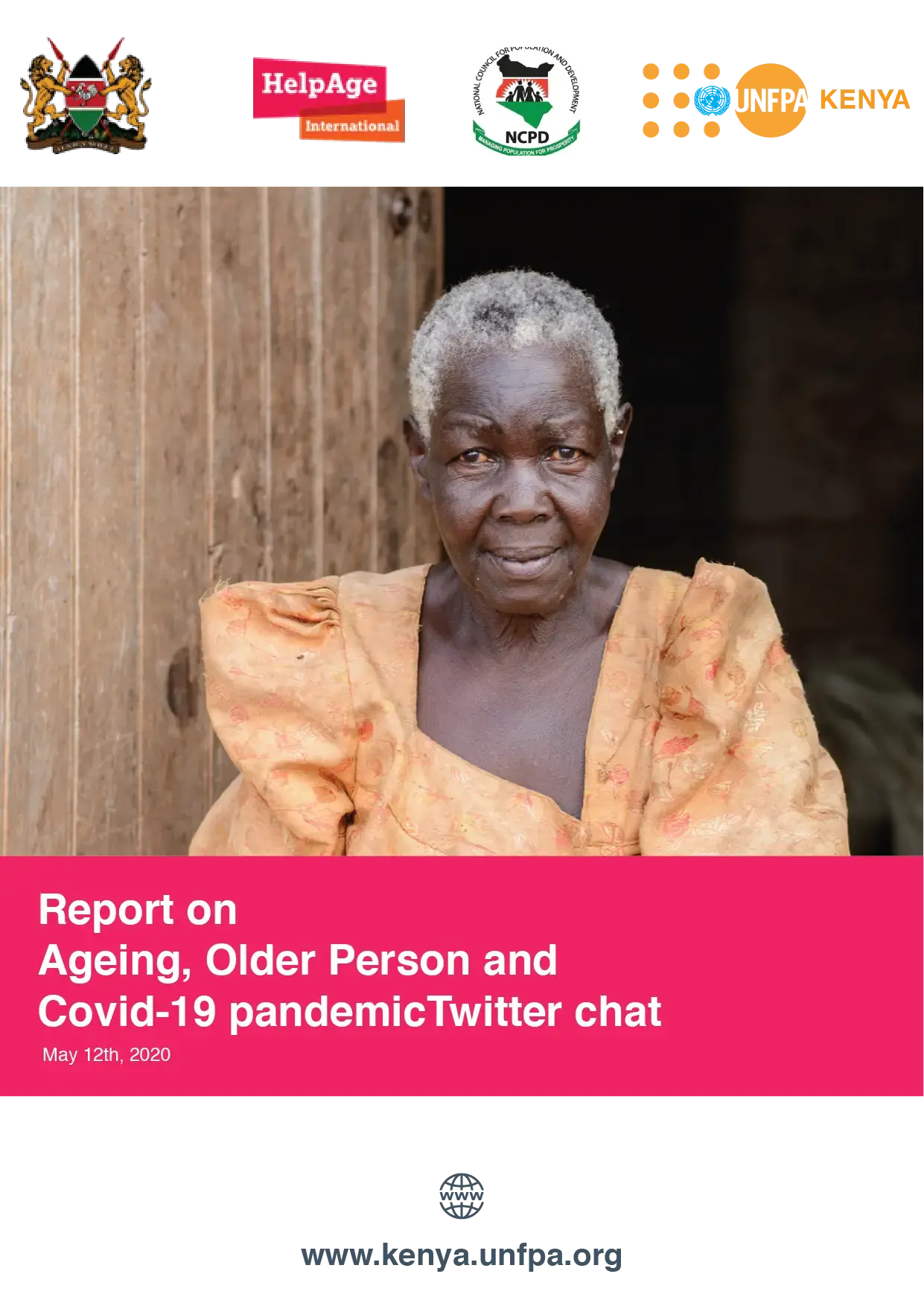The Coronavirus disease and the measures that have been put by the government, while is meant to reduce the spread of COVID-19, poses a great risk to ageing and older persons. For instance, the measure to reduce social distancing and restriction on movements pose added burdens for older persons, as older persons are less likely to rely on online social interaction and getting needed information. Older persons may also rely heavily on long-term care providers at home, or in facilities to meet their basic needs, placing unique demands on their families, health workers and caregivers trying to reduce exposure, and keep older persons safe from the risk of infection will further deteriorate their health or make them susceptible to other conditions. Many of the older persons depend on routine clinics to health facilities that cannot be reached due to the restriction to movements and the curfew. Ageing and older persons have over the years confronted multiple barriers in accessing quality health care, including affordability, accessibility and age-related stigma. In countries like Kenya where there is a limited medical facility specialized for older persons, older people may be at Increased risk of exclusion of medical treatments if they are less prioritized than persons with a higher likelihood of survival. Older persons especially those living alone and are subjected to quarantine may face barriers to obtaining accurate information, food, medication, and other essential supplies during quarantine period. These persons may also experience an increased risk of being subjected to GBV. To fill in the information gap and address issues that the older persons are facing or may face during this pandemic, UNFPA in collaboration with the Government of Kenya and HelpAge, held a twitter conversation and engaged with the public on the implications of the COVID-19 on older persons
Who we are
What we do
Report on Ageing, Older Person and Covid-19 pandemicTwitter chat

Publisher
Mukiza Mwenesi
Number of pages
8
Author
UNFPA Kenya
Technical Reports and Document
Report on Ageing, Older Person and Covid-19 pandemicTwitter chat
Publication date
22 May 2020

